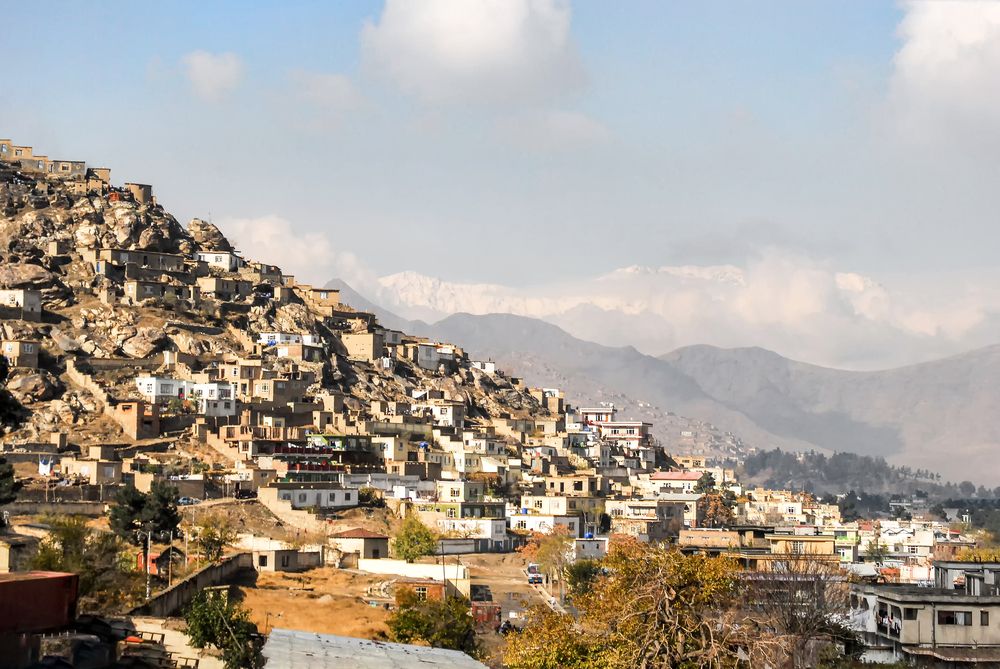As part of its ‘City For All’ program, the United Nations is actively developing blockchain solutions that could help encourage sustainable urban development in Afghanistan.
In a statement given to the online news publication The Sociable, a spokesperson for the UN Secretary-General said that the technology will be used to ensure secure, systematic, and transparent land record management as part of a larger rebuilding process.
Blockchain, the technology that underpins the cryptocurrency asset class, is used to share data in a decentralized manner. Even though participants in a blockchain network do not have to trust each other, software logic ensures data integrity, security, and transparency to all parties involved. It comes as no surprise, therefore, that the United Nations is using blockchain technology to tackle major global issues.
The United Nations has previously endorsed the use of blockchain technology in areas such as health services in East Africa. It also established a blockchain-based credit bureau in Sierra Leone at the UN General Assembly in September 2018.
This is something we have been working for several months now, we are extremely excited to now make it official. Working with the @UN in Africa will allow us to help millions of people who normally would not have access to #healthcare. #telemedicine $MTC https://t.co/awo9d9CQ1k
— doc.com (@doc_comofficial) December 27, 2018
Achieving Sustainable Development in Afghanistan
The United Nations Office of Communication and Information Technologies (UN-OICT) has pledged its support to the government of Afghanistan. According to the spokesperson, the program will prove to be instrumental for the implementation of sustainable urbanization in the country’s largest cities. Launched in 2016, the ‘City for All’ program aims to transform major Afghan cities, including the country’s capital Kabul. With the expectation that the Afghan population will largely urbanize over the course of the next 15 years, the UN-OICT says that it is developing systems to ensure the effective management of land, strategic urban planning, and improved execution of governance.
UN-Habitat and UN-OICT Sign MoU
The UN-Habitat, which is in charge of providing technical support to the ‘City for All’ initiative, signed a memorandum of understanding (MoU) with the UN-OICT to improve Afghanistan’s basic infrastructural foundations by leveraging blockchain technology. One of the core principles of the UN-Habitat is to support social and environmental development in a sustainable manner. This arrangement is one of the primary steps towards fulfilling the 2030 Agenda for Sustainable Development, which hopes to eradicate poverty and achieve sustainable development worldwide by 2030. According to the MoU, the UN-Habitat and the UN-OICT will work to expand their collaborative efforts all over South Asia, and leverage emerging technology and tools for effective urban design and planning. The focus of the initiative, according to the UN spokesperson, is on Afghanistan, India, Bangladesh and Sri Lanka. They further added that an expansion plan would not be too unlikely if positive results of the program are observed. Do you think that the interaction of blockchain technology with social issues will have positive effects? Let us know your thoughts in the comments below.Disclaimer
In adherence to the Trust Project guidelines, BeInCrypto is committed to unbiased, transparent reporting. This news article aims to provide accurate, timely information. However, readers are advised to verify facts independently and consult with a professional before making any decisions based on this content. Please note that our Terms and Conditions, Privacy Policy, and Disclaimers have been updated.

Rahul Nambiampurath
Rahul Nambiampurath's cryptocurrency journey first began in 2014 when he stumbled upon Satoshi's Bitcoin whitepaper. With a bachelor's degree in Commerce and an MBA in Finance from Sikkim Manipal University, he was among the few that first recognized the sheer untapped potential of decentralized technologies. Since then, he has helped DeFi platforms like Balancer and Sidus Heroes — a web3 metaverse — as well as CEXs like Bitso (Mexico's biggest) and Overbit to reach new heights with his...
Rahul Nambiampurath's cryptocurrency journey first began in 2014 when he stumbled upon Satoshi's Bitcoin whitepaper. With a bachelor's degree in Commerce and an MBA in Finance from Sikkim Manipal University, he was among the few that first recognized the sheer untapped potential of decentralized technologies. Since then, he has helped DeFi platforms like Balancer and Sidus Heroes — a web3 metaverse — as well as CEXs like Bitso (Mexico's biggest) and Overbit to reach new heights with his...
READ FULL BIO
Sponsored
Sponsored
